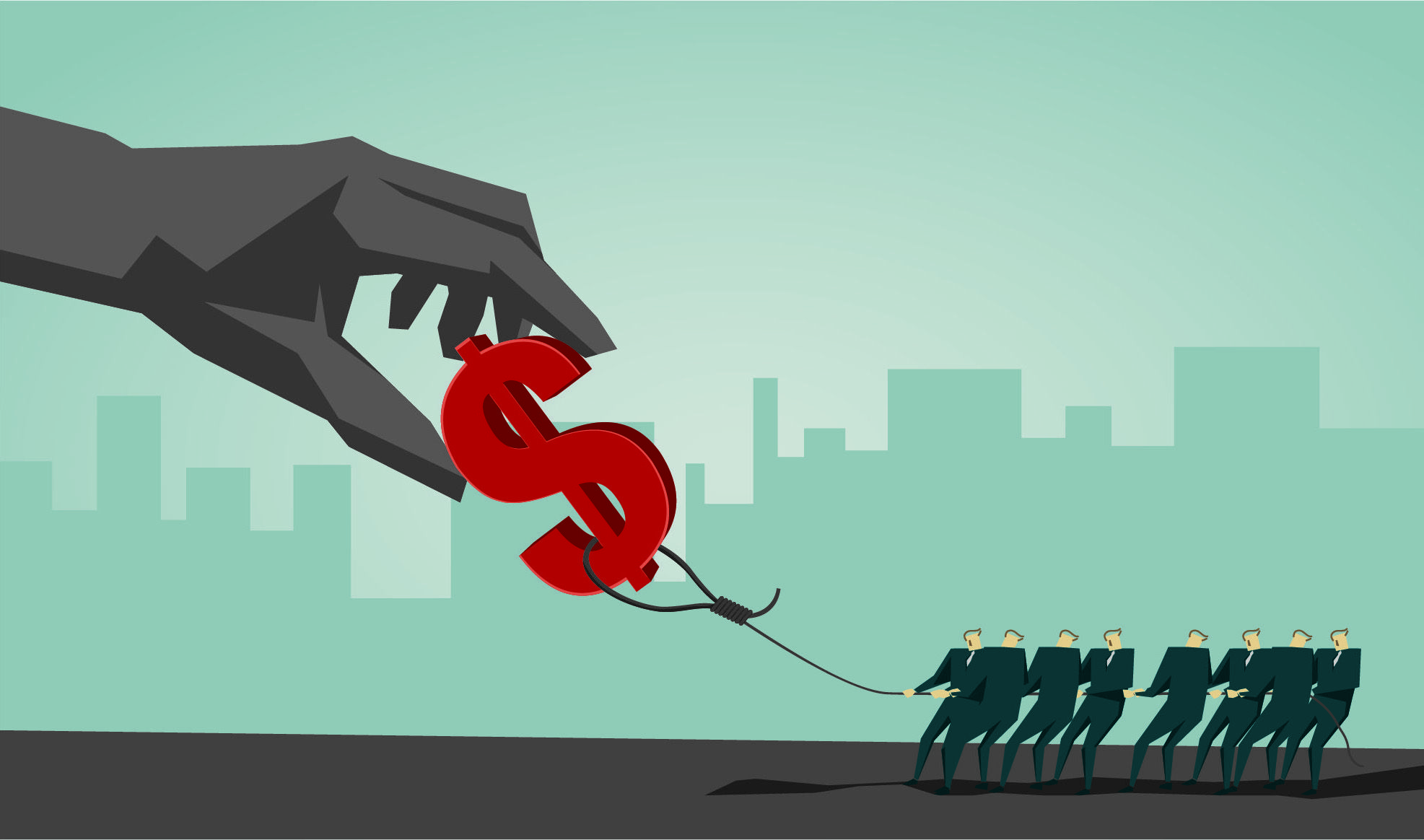
“Is making money the major goal for entrepreneurs?” she asked in a recent paper. “For most of them, probably not. Not making big money, but making some money so they have income security, will be fine.”
Democratic presidential candidate Bernie Sanders has also fueled the controversy, notably when he visited the Vatican in April. “The issue of wealth and income inequality is the great economic issue of our time, the great political issue of our time and the great moral issue of our time,” said the socialist from Vermont.
However, more CEOs have been pushing back against the view that income inequality demonstrates some sort of villainy on the part of the 1 percent or even the global economic system. And it is only natural that they should complain to Chief Executive about the victimization.
In part, that’s because Chief Executive kicked off a discussion of the effects of an uneven economic playing field with the story, “Why Crony Capitalism Hurts Us All,” in the September/October 2014 issue of the magazine. After the magazine ran another story, “8 CEOs Weigh In on Income Inequality,” in the January/February issue this year, MMI Outdoor CEO David Cobb took the trouble to write a long and eloquent letter to the magazine.
“The general mindset appears to be that income inequality is the great fault of capitalism, which seems to ignore the reality of dire poverty around the world in non-capitalist societies,” wrote Cobb, a maker of tents and other outdoor gear based in Montgomery, Alabama.
“If we are to ultimately fix the problem,” Cobb continued, “we have to candidly address all of the factors that contribute, rather than seek to put a Band-Aid on the issue through tax increases or more welfare for the lower class.”
In Cobb’s analysis, the country’s education and healthcare systems contribute to the issue by creating “protected oligopolies that do not have to compete openly for their customers.” In education, for example, “poor lifestyle choices and values systems” are partly to blame, as well as “the concept of throwing more federal tax dollars into the public system.”
Also to blame is a rising dropout rate stemming from a “cultural values problem,” and the fact that “as our societal values have changed, postsecondary education choices have become alarmingly bad.”
“The problem we face with income inequality is an indictment of our collective values in this country, not an indictment of capitalism, and we can’t fix every problem overnight,” Cobb concluded. “But as CEOs, we can lead by example.”


0

1:00 - 5:00 pm
Over 70% of Executives Surveyed Agree: Many Strategic Planning Efforts Lack Systematic Approach Tips for Enhancing Your Strategic Planning Process
Executives expressed frustration with their current strategic planning process. Issues include:
Steve Rutan and Denise Harrison have put together an afternoon workshop that will provide the tools you need to address these concerns. They have worked with hundreds of executives to develop a systematic approach that will enable your team to make better decisions during strategic planning. Steve and Denise will walk you through exercises for prioritizing your lists and steps that will reset and reinvigorate your process. This will be a hands-on workshop that will enable you to think about your business as you use the tools that are being presented. If you are ready for a Strategic Planning tune-up, select this workshop in your registration form. The additional fee of $695 will be added to your total.

2:00 - 5:00 pm
Female leaders face the same issues all leaders do, but they often face additional challenges too. In this peer session, we will facilitate a discussion of best practices and how to overcome common barriers to help women leaders be more effective within and outside their organizations.
Limited space available.

10:30 - 5:00 pm
General’s Retreat at Hermitage Golf Course
Sponsored by UBS
General’s Retreat, built in 1986 with architect Gary Roger Baird, has been voted the “Best Golf Course in Nashville” and is a “must play” when visiting the Nashville, Tennessee area. With the beautiful setting along the Cumberland River, golfers of all capabilities will thoroughly enjoy the golf, scenery and hospitality.
The golf outing fee includes transportation to and from the hotel, greens/cart fees, use of practice facilities, and boxed lunch. The bus will leave the hotel at 10:30 am for a noon shotgun start and return to the hotel after the cocktail reception following the completion of the round.